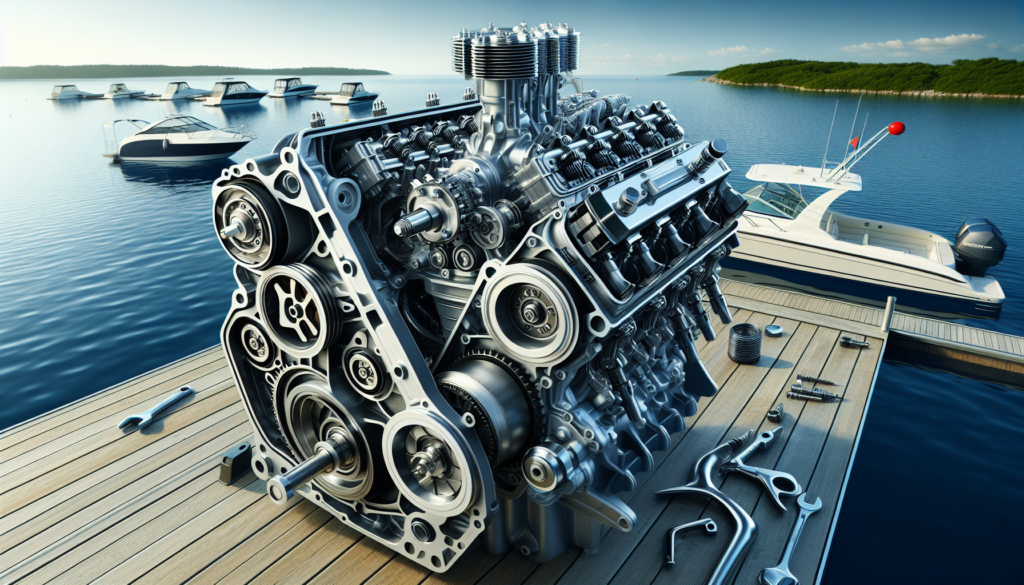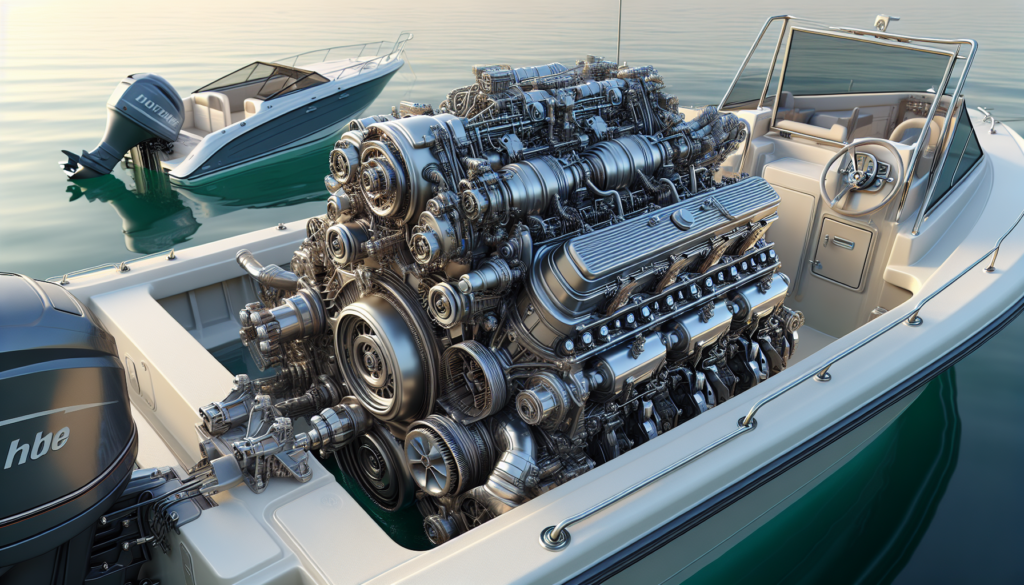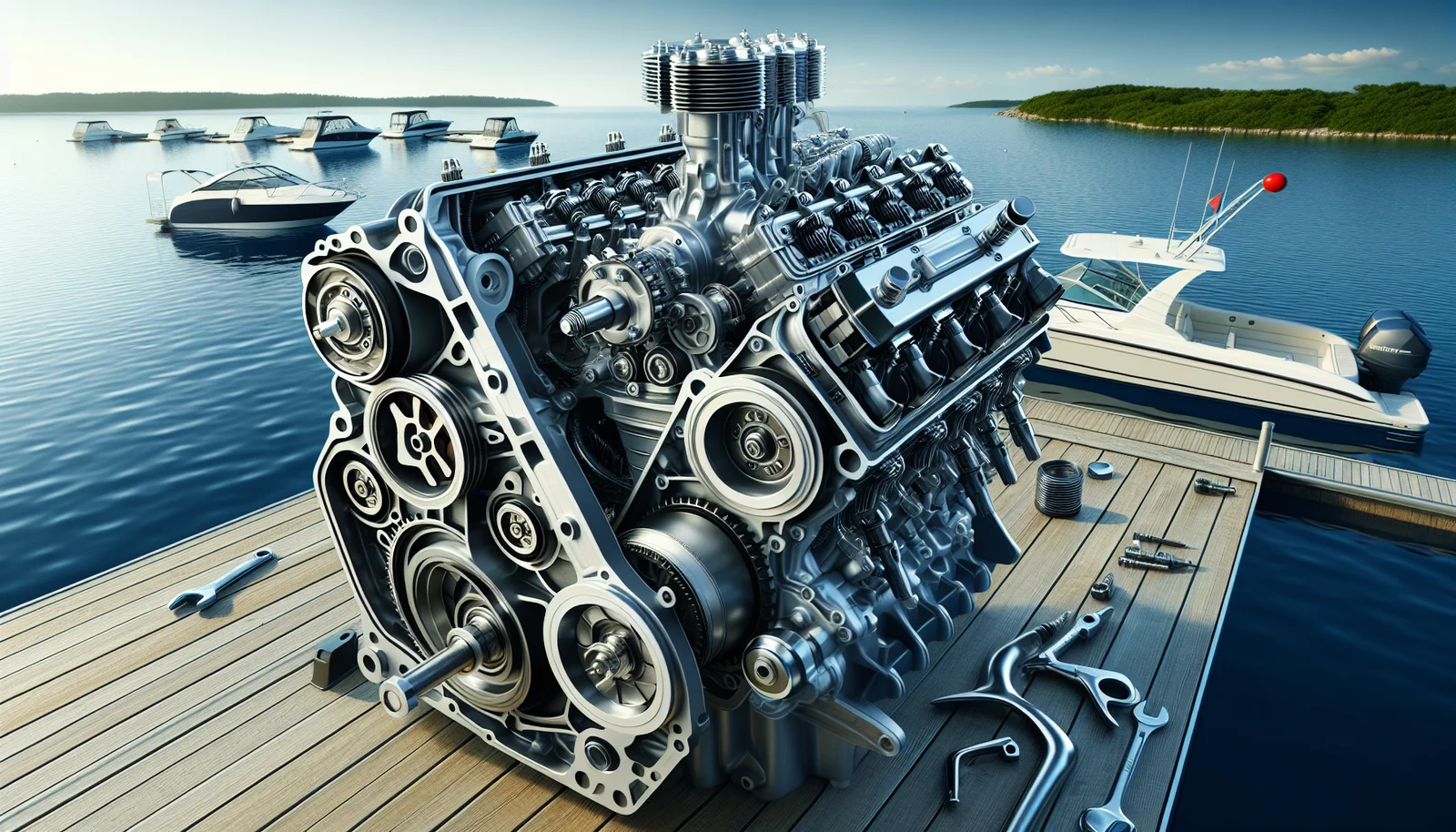Picture this: you have planned out an amazing day on the water, but the moment you turn on your boat’s engine, it starts sputtering and running rough. Instead of the pleasant hum you’re accustomed to, the engine’s off-beat rhythm is now stuck in your head like a bad song. This article will guide you through understanding the reasons why your boat engine might be running rough and provide practical, easy-to-follow solutions to help you fix it. So, let’s turn that rough engine back into the smoothly running machine it’s meant to be.

Common Reasons for a Rough Running Boat Engine
Whether you are a seasoned seafarer or a casual boat user, dealing with a rough running boat engine can be quite a headache. Several problems could be causing your boat engine to run roughly, but let’s focus on some of the most common ones.
Ignition Problems
Your boat engine might be having a rough time if there are any issues with the ignition system. Such problems could be due to faulty spark plugs, deteriorated ignition coils, or corroded wiring. These components are vital in ensuring your boat starts and runs smoothly.
Fuel System Issues
The fuel system plays an integral role in the performance of your boat engine. Thus, any issues within this system can easily lead to a poor-running engine. Problems might range from a clogged fuel injector, damaged fuel pump, dirty fuel filter or the use of poor quality or old fuel.
Air Intake Complications
If your boat engine is struggling, you might need to check the air intake system. This could be something as simple as a dirty air filter or something more complex like issues with the throttle body or even the Turbocharger.
Engine Overheating
If left unresolved, engine overheating can progress from being a minor inconvenience to a major setback. This could be as a result of a faulty water pump, blocked cooling system, insufficient coolant or engine exhaust overload.
Signs Your Boat Engine Is Running Rough
Do you suspect that your boat engine might be running rough? Here are a few telltale signs that you should look out for.
Unusual Engine Noises
Your boat engine should typically run smoothly without making any unusual noises. If you start hearing sounds that you’re not used to, this could be a sign that your engine is running rough.
Irregular Engine Vibrations
A smoothly running engine should not cause your boat to shake noticeably. If you observe that your boat vibrates more than usual, then this could be due to a rough running engine.
Unexpected Power Loss
Unexpected power loss can be a frustrating experience, especially when you’re out on the water. This usually points to an issue with the engine’s performance, indicating that it might be running roughly.
Engine Misfires
Engine misfires can be quite alarming as they often lead to your boat losing power momentarily. This is a clear sign that your engine needs attention.
Understanding Ignition Problems
The ignition system is a major player in the functionality of your boat engine. Let’s delve into some of the more common problems you might encounter.
Faulty Spark Plugs
Spark plugs are responsible for igniting the fuel-air mixture in your engine’s cylinders. If these plugs are faulty, your engine might not start, thus leading to a rough running condition.
Deteriorated Ignition Coils
Ignition coils help ramp up the voltage produced by your battery enabling the spark plugs to ignite the fuel efficiently. If they deteriorate, you might start experiencing rough starts and engine misfires.
Corroded Wiring
The wiring within your boat engine’s ignition system is vital in conducting electricity. If this wiring is corroded, it could lead to inconsistent sparking which results in a rough running engine.

Addressing Fuel System Issues
Your boat’s fuel system demands constant attention. Here’s how you can address some of its most common problems.
Dirty Fuel Filter
The fuel filter prevents debris and other contaminants from reaching the engine. If it’s dirty, the debris might get through and affect engine performance.
Clogged Fuel Injectors
Fuel injectors ensure that the right amount of fuel gets mixed with air for combustion. If they’re clogged, your engine might become starved of fuel and run roughly as a result.
Damaged Fuel Pump
The fuel pump plays a vital role in delivering fuel from the tank to the engine. If it gets damaged, your boat engine might struggle with receiving enough fuel to run smoothly.
Poor Quality or Old Fuel
Poor quality or old fuel can invite a host of complications, with one of them being a roughly running engine. Always ensure that you use high-quality fuel that hasn’t been stored for extended periods.
Resolving Air Intake Complications
Your boat engine needs a steady supply of clean air for proper combustion. Here are some possible issues with air intake systems and how to resolve them.
Dirty Air Filter
The air filter ensures that the air entering the engine is free from dust and debris. If it’s dirty or clogged, the engine might get choked, resulting in a poor performance.
Malfunctioning Throttle Body
The throttle body regulates the amount of air that enters your engine. Should it malfunction, your engine could end up with an imbalanced fuel-air mixture that causes it to run roughly.
Issues with the Turbocharger
A turbocharger boosts engine performance by forcing more air into the combustion chamber. If it’s malfunctioning or damaged, this could lead to engine lag or even engine failure.
Dealing with Engine Overheating
Engine overheating is a serious concern that might indicate your boat engine is running roughly. Here’s how to deal with common overheating issues.
Faulty Water Pump
The water pump circulates coolant through the engine, keeping it cool. If it’s faulty, your engine’s temperature might rise considerably, leading to overheating.
Blocked Cooling System
Coolant channels could get blocked, preventing coolant flow hence causing the engine to overheat. Regular system flushes will help keep the cooling system efficient.
Insufficient Coolant
Insufficient coolant is a sure way for your engine to overheat quickly. Always ensure that your coolant is at the right levels and is not leaking.
Engine Exhaust Overload
A good exhaust system diverts engine heat away. However, if there is an overload, the system might fail, causing the engine to lock up and overheat.
Preventive Maintenance for a Boat Engine
Proper maintenance is the key to a smooth-running boat engine. Let’s look at some preventive measures that you can undertake to avoid a rough running engine.
Regular Oil Changes
Regular oil changes ensure that your engine operates smoothly. This is because engine oil lubricates the moving parts inside your engine and also helps dissipate heat.
Regular Inspections of the Ignition System
Regular checks on the ignition system components will help you pinpoint deteriorated ignition coils, faulty spark plugs, or corroded wiring before they become a major problem.
Frequent Radiator Flush
Routinely flushing your radiator helps clear out any debris accumulation. This helps it work optimally in cooling the engine, thus preventing overheating.
Fuel System Cleanliness
Keeping the fuel system clean prevents substances like rust and debris from reaching your boat’s engine. You can achieve this by frequently changing fuel filters and using clean, high-quality fuel.
Procedure for Troubleshooting a Rough Running Engine
Your boat engine running rough doesn’t always call for professional help. Sometimes you can diagnose and fix the problem yourself following these steps.
Diagnosing the Problem
First, identify the problem. Is it with the ignition system? The fuel system? Or perhaps the air intake system? Once you know what you’re dealing with, it’s easier to proceed.
Gathering Tools and Materials
Once you’ve identified the problem, gather the necessary tools and materials to fix it.
Following Safety Procedures
Always ensure that you follow all safety procedures to avoid any mishaps. These might include wearing protective equipment and disconnecting the engine’s power supply before starting your work.
Applying the Repair
Once everything is set, apply the repair. If unsure, it’s always advisable to refer to your user’s manual or seek advice from a fellow boater or professional.
Knowing When to Call a Professional
Sometimes, troubleshooting and repairing your boat engine might be beyond your capabilities. Here are some signs that it’s time to call in a professional.
Excessive Engine Heat
If your engine is overheating excessively even with coolant at the right levels, it might be time to bring in a professional.
Persistent Power Loss
If your boat engine continues to lose power despite your efforts, this might be a sign of a deeper underlying issue that calls for professional help.
Repeated Fuel System Issues
While isolated fuel system problems might be fixable, repeated issues could indicate a problem with your boat’s overall fuel system requiring professional intervention.
Persistent Rough Idling
If your engine keeps on rough idling no matter how many times you’ve tried to fix it, you might need a professional to dissect the situation for you.
Expected Costs of Repairing a Rough Running Boat Engine
Repairing a rough running boat engine might come with several costs, let’s break them down.
Cost of Parts
The cost of parts needed to repair your boat engine can vary greatly, depending on the nature and extent of the damage and the specific parts required.
Labor Costs
Professional troubleshooting and repair services also incur labor costs. These rates may vary depending on the service provider and how complex the problem is.
Possible Additional Expenses
You might also incur additional expenses such as towing services in case your boat breaks down in water, or extra costs if your engine requires specialized attention.
In conclusion, tackling a rough running boat engine involves understanding the potential problems, identifying signs of engine trouble, implementing preventive maintenance measures, troubleshooting, and knowing when to call a professional. Additionally, understanding the potential costs involved will help you budget appropriately.

